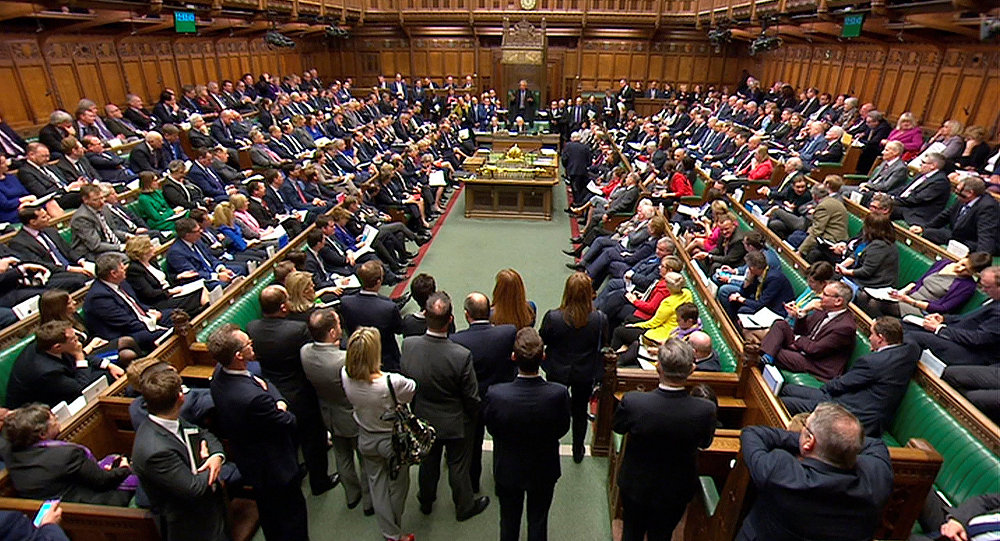UK in Chaos
January 19, 2019 | Expert Insights

Britain’s last-minute scramble to shape an EU exit, its biggest policy upheaval in half a century, was stalled again as Prime Minister Theresa May and opposition Labour leader Jeremy Corbyn actively advocated for competing visions.
Background
On June 23rd, 2016, Britain narrowly voted to leave the European Union, stunning Europe and the world in general. The EU employs a set of policies for its 28-member states that aim to ensure the free movement of people, goods and trade among other services. Britain is deeply intertwined with the workings of the EU especially with regard to trade.
PM Theresa May’s leadership in the negotiations has been heavily criticised. She has been unable to form a consensus within the Parliament, or even her own party, for the course of Brexit. Her “directionless” leadership has not convinced most of her peers in Westminster and she was challenged by a no-confidence motion in early December 2018, which she narrowly won.
Despite her best efforts, the British parliament is not accepting the proposed Brexit agreement. Irrespective of whether they arrive on a deal or not, the UK is officially set to leave in March 2019.
PM May has just survived a turbulent week in Parliament as she saw her proposed Brexit plan defeated with the largest margin in a century but also surviving a potentially course-changing no-confidence motion raised by Jeremy Corbyn.
Analysis
After May’s two-year attempt to forge an amicable divorce with an independent trade policy was crushed by parliament in the biggest defeat for a British leader in modern history, May asked party leaders to forget self-interest to find a solution.
Yet there was little sign on Thursday that either of the two major parties — which hold 88 percent of the 650 seats in parliament — were prepared to compromise on key demands.
Corbyn said May had sent Britain hurtling towards the cliff edge of a disorderly exit on March 29 with no transition period, and urged her to ditch “red lines”. However, he repeated his own prerequisite for talks: a pledge to block a no-deal Brexit. May told Corbyn that was “an impossible condition” and urged him to join cross-party discussions.
“You have always believed in the importance of dialogue in politics. Do you really believe that, as well as declining to meet for talks yourself, it is right to ask your MPs not to seek a solution with the government?” she said in a letter.
The further May moves towards softening Brexit, the more she alienates dedicated Brexit supporters in her own Conservative party who think the threat of a no-deal exit is a big bargaining chip and should anyway not be feared. May’s spokeswoman said she held “constructive” talks on Thursday with MPs, including some from Labour.
If she fails to forge consensus, the world’s fifth-largest economy will drop out of the European Union on March 29 without a deal or will be forced to delay Brexit, possibly holding a national election or another referendum.
Corbyn said that he might look at options including another referendum — a remark that increased market expectations the chaos could ultimately delay or stop Brexit.
But a second referendum would take a year to organise, according to government guidance shown to MPs on Wednesday, a source in May’s office said.
Corbyn wants May to call another election, something she has refused, having lost her parliamentary majority in a 2017 snap poll that left her reliant on the support of a small Northern Irish pro-Brexit party.
She has also repeatedly said another referendum would corrode faith in democracy among the 17.4 million people who voted to leave the EU in 2016. Her spokesman said Britain had not raised the idea of delaying exit with the EU.
As the United Kingdom tumbles towards its biggest political and economic shift post World War Two, other EU members have offered to talk. “We will do everything we can so that Britain exits with, and not without, an agreement,” said German Foreign Minister Heiko Maas.
EU chief negotiator Michel Barnier said the bloc was open to the possibility of a “more ambitious” deal than May’s, which he said could not be improved on under principles she set out. However, they can do little until London decides what it wants.
Assessment
Our assessment is that the possibility of Brexit not happening altogether is getting stronger with every failure of the Theresa May government. We believe that the Conservative Government may request an extension from the EU on the exit date especially after German Foreign minister has signalled an intent to cooperate with London.








Comments